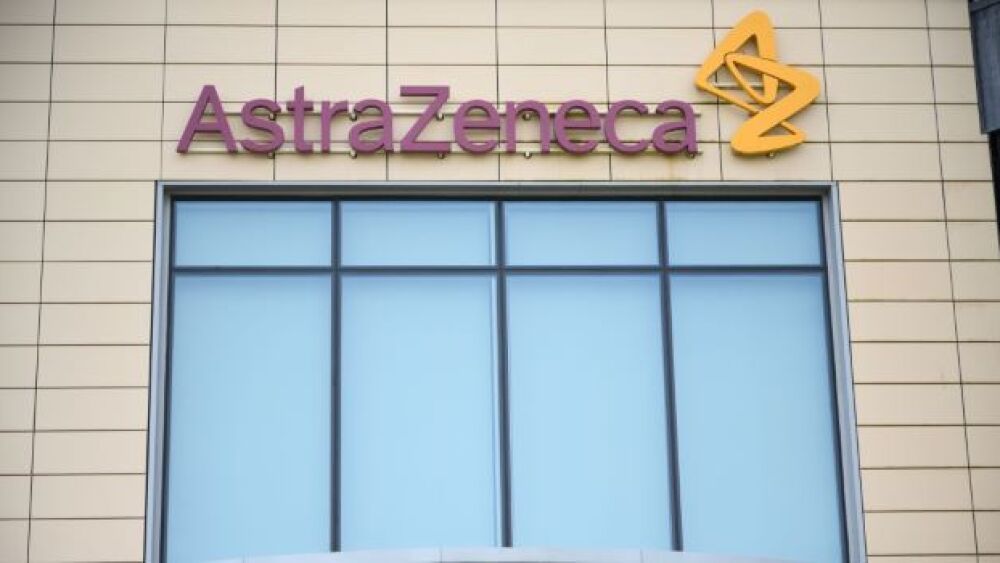Ikena Oncology and AstraZeneca have entered into an agreement to evaluate Tagrisso (osimertinib) with Ikena’s IK-930 in EGFR-mutated non-small cell lung cancer.
Courtesy of Leon Neal/Getty Images
Ikena Oncology has entered into a clinical trial collaboration agreement with AstraZeneca to evaluate Tagrisso (osimertinib) with Ikena’s IK-930 as a treatment option for patients with EGFR-mutated non-small cell lung cancer, Ikena announced Tuesday.
Tagrisso is a third-generation epidermal growth factor receptor tyrosine kinase inhibitor. Ikena’s IK-930 is a novel TEAD inhibitor, which works by targeting the Hippo signaling pathway in patients with unresectable NF2-deficient malignant pleural mesothelioma (MPM).
IK-930 was granted Fast Track designation in June by the FDA for MPM patients.
Currently, patients with NF2-deficient MPM are treated with a combination of standard-of-care options that include chemotherapy, surgery, immunotherapy and radiation. IK-930 could introduce a novel treatment approach to help patients affected with MPM, AstraZeneca stated.
Patients with NF2-deficient MPM account for 40% of worldwide mesothelioma patients.
“Patients with Hippo-altered cancers are in need of therapies that are effective, safe and significantly improve their quality of life. IK-930 is specifically designed as a paralog-selective TEAD inhibitor that has the potential to provide patients with a differentiated treatment option,” said Mark Manfredi, Ph.D., CEO of Ikena, in a press release.
Manfredi told BioSpace how this trial differs from other treatments currently available.
“Patients with EGFR-mutant lung cancers can develop resistance to EGFR inhibitors, and have limited therapeutic options to move forward. This partnership arose from a joint desire to investigate how TEAD inhibitors like IK-930 could increase anti-tumor activity in patients who experience therapeutic resistance,” Manfredi said.
Fiona Cookson, AstraZeneca’s senior director of global media relations, told BioSpace the partnership between Ikena and AstraZeneca was sparked due to “emerging evidence in the role of the Hippo pathway as a potential resistor to targeted therapies.”
With Ikena sponsoring and running the trial, AstraZeneca will be supplying Tagrisso to be evaluated alongside IK-930 as a treatment for patients with EGFRm NSCLC. Cookson said the collaborative trial is “part of the company’s commitment to target emerging mechanisms of resistance to Tagrisso through internal discovery efforts and external collaborations.”
No payments are being made between the companies, and AstraZeneca could not provide an expected time frame for this trial.
Cookson said AstraZeneca has noted pre-clinical evidence that the combination of a TEAD inhibitor like IK-930 “may overcome therapeutic resistance via the targeting of drug resistance persister cells.”
The ongoing clinical trial will include planned cohorts to explore varying combinations of targeted therapies. One cohort will focus on IK-930’s potential to overcome resistance to EGFR inhibitors.
Of patients who have been treated with and developed a resistance to osimertinib, 50 percent have actionable mechanisms and available therapies, but 50 percent do not. This leaves a large portion of the patient population without clear treatment options, which is what led to the joint effort between AstraZeneca and Ikena.
Preclinical results showed that when IK-930 was combined with osimertinib, the result was an “increased induction of apoptosis and improved anti-tumor activity in multiple EDGRm tumor models,” Ikena stated in the press release.
As part of the agreement, AstraZeneca will provide osimertinib “non-exclusively for evaluation in combination with IK-930 in patients with EGFRm-resistant NSCLC.”





